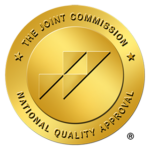Home / What We Treat /
Home / What We Treat / Meth Addiction Treatment in St. Louis
Methamphetamine, or meth, is a potent central nervous system stimulant that causes an intense euphoria. It’s a highly addictive drug because it brings a powerful but short-lived high, leading to binge cycles that build tolerance and addiction quickly.
What Is Meth?
Meth is a highly addictive stimulant that’s primarily used recreationally. It comes in powder or crystal form (crystal meth), which looks like white rocks or glass, and may be snorted, injected, smoked, or ingested in pill form. Though meth has extremely limited medical use, most meth comes from the illicit market.
Meth is highly addictive because of its potent action on the neurotransmitters dopamine and serotonin. These neurotransmitters are responsible for feelings of pleasure, reward, and motivation, as well as mood, appetite, and memory, respectively.[1] When you use meth, the dopamine levels rise significantly, creating euphoria. When the effects wear off, the brain is depleted of dopamine and serotonin, leading to depression and anxiety.
The short-term effects of meth include:[2]
Chronic, long-term exposure to meth can chemically alter the structure and function of the brain.[3] This can impair motor skills, learning abilities, and emotional regulation – which may last for months or years after stopping meth use.
Meth Addiction and Abuse
The use of meth, as well as overdose deaths and related arrests, rose from 2015 to 2019. During that time period, the number of people in the U.S. with a methamphetamine-related substance use disorder (addiction) jumped 27% and overdose deaths involving meth nearly doubled.[4]
The extreme effects of meth reinforce its use – even with negative effects – and build tolerance quickly. With chronic use, the brain is depleted of dopamine, causing reliance on the drug to experience any pleasure. This causes repeated use of meth, building dependence and a compulsive need to continue using the drug.

Signs of Meth Abuse and Addiction
Meth can be extremely addictive, but not everyone who uses meth develops an addiction. Some of the common signs of meth abuse include:[5]
Meth addiction is classified as a stimulant use disorder in the Diagnostic and Statistical Manual of Mental Disorders (DSM-5). The criteria include:[6]
Chronic meth use can lead to dependence, which means the body has become used to the presence of the drug and needs it to function. If you are dependent on meth and stop taking it or dramatically reduce your use, withdrawal may occur with symptoms like extreme fatigue, insomnia, nightmares, anxiety, depression, irritability, intense cravings, and hunger.
Meth Addiction Treatment in St. Louis
Meth can have a powerful grip that makes it difficult to reach recovery. However, treatment can be effective for meth addiction. At Engage Wellness we treat meth addiction with personalized treatment plans that address the physical, emotional, mental, and social aspects of substance use disorder for whole-person healing.
Though meth withdrawal isn’t typically life threatening, detox is often necessary to prevent relapse and manage severe withdrawal symptoms. Our detox placement helps you coordinate medically supervised detox to build a strong foundation for addiction treatment.
Once stabilized, you can begin intensive outpatient programs (IOP) for meth addiction, which is a more intensive program with rigorous therapy sessions without the need for an inpatient stay, or outpatient treatment, which offers more flexibility without compromising treatment and support.
Both IOP and outpatient programs offer a range of therapies for individualized treatment, including:
01
This brings together the whole family and loved ones to learn healthy communication, address past conflict, and create a supportive environment for recovery.
02
This environment builds support with recovery peers and opportunities to share experiences and develop social skills.
03
Based on Alcoholics Anonymous (AA), these groups facilitate recovery through accountability and self-reflection.
04
This type of behavioral therapy helps treat addiction by identifying unhelpful thoughts and behavioral patterns and replacing them with healthier habits.
05
This type of behavioral therapy builds emotional regulation skills and mindfulness to support long-term recovery.
06
This technique inspires intrinsic motivation by identifying and resolving any ambivalence toward addiction and recovery.
07
This type of therapy focuses on trauma and can help with past traumatic experiences that may contribute to addiction.
08
These programs combine techniques to prevent relapse by identifying triggers and managing stress.
09
These techniques focus on whole-person healing with therapies like yoga, acupuncture, and meditation.
10
The veterans program addresses the unique needs of military veterans and the specific challenges with reintegration to civilian life, combat trauma, and other contributing factors to addiction.



